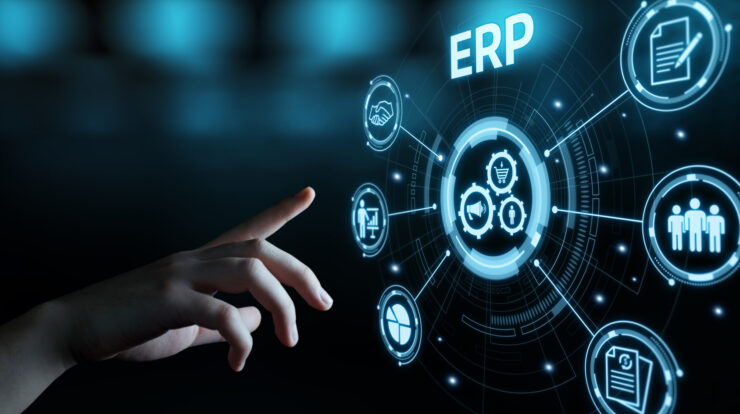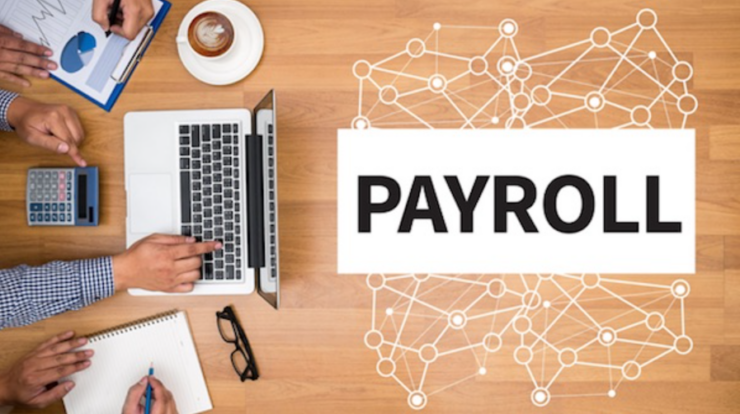
This post will assist you in swiftly comparing and evaluating the top enterprise resource planning best ERP Software available, as well as several other ERP Software that I believe you’ll find useful. Here are some examples of appropriate ERP software examples for businesses that you may look at. It is easy to see the allure of ERP Software free enterprise resource planning systems (also known as ERP systems or ERP software). Who wouldn’t like the thought of business operations being organized and kept up to date in a tidy, scalable package, after all? A 2019 survey found that this is likely why 50% of businesses plan to install ERP Software or update the ones they already have.
In this article, I’ll define enterprise resource planning ERP Software and discuss how ERP software providers want to make it simpler for you to handle assessments of time, money, logistics, and other factors. A systematic strategy known as enterprise resource planning (ERP) enables you to merge data into a single source of truth that is advantageous to the whole organization.
15 Best ERP Software Enterprise resource planning in 2023
ERP software makes all of this possible because it brings together important metrics and detailed data from many different departments, such as operations, supply, manufacturing, and finance. Your data is on a central platform in this way, reducing the need for manual entry, making company data public, and integrating partner data for smooth operations and transparency.
ERP also lets you come up with new ways of doing things that wouldn’t have been possible with manual data entry or separate technologies. With capabilities like HR, accounting, customer relationship management (CRM), supply chain management, and more, the software assists you in managing all of your company’s activities in one system. Overall, ERP software saves the business money that you would have otherwise spent on a vast array of unrelated apps.
Planning Tools for ERP Software
Business process management technologies like Enterprise Resource Planning (ERP) streamline your hardware and software. A common platform where all team members may share real-time information is created by ERP software stand for combining multiple departments, procedures, and business divisions. To improve performance, lower misunderstandings, and avoid unnecessary expenditure, the finest ERP software free download incorporates business operations, including project management, HR, business analytics, and enterprise CRM software.
In reality, the question of how to tell the difference between ERP and CRM software will always need careful thought. When it comes to ERP systems, there are a lot of new companies on the market, so depending on your demands, selecting the finest and most cutting-edge technology may be a gradual process.
What Is the Importance of ERP?
These are the top four business advantages of ERP.
- IT cost reductions.
- The efficiency of workflow
- platform for standardizing business processes.
- a point of entry for innovative businesses.
The latter two categories may have a greater impact on firms, despite the fact that businesses typically rely on the first two domains since they are easy to assess. ERP makes real-time business information available throughout the organization, enabling businesses to react quickly to changes.
Businesses can make better decisions when they have access to business data through ERP systems. ERP systems can also share information with suppliers and other third parties. This helps make the supply chain work better.
Advantages of ERP Software
How to use erp software? Most ERPs use common databases that let data flow from one module to the next. This lets the whole enterprise use just one tool. Payroll is one such HR-connected process. But because it concerns money, the Finance department is also involved. Data must be transferred between the Finance and HR modules in such circumstances. You can do daily tasks and long-term planning more effectively if you use enterprise resource planning systems.
#1. Oracle NetSuite
Oracle Corp. purchased NetSuite and is now promoting it. In addition to NetSuite OneWorld, which enables the implementation of NetSuite across many currencies and the management of numerous organisational subsidiaries, NetSuite consists of five suites: ERP, CRM, E-Commerce, Professional Services Automation, Human Capital Management, and NetSuite.
Features
- Business intelligence is integrated into NetSuite’s financial management tools.
- The financial planning parts will cut down on cycle times and make your planning process better.
- The order to cash process will be sped up by its order management features.
- Its features and functions help with all of the following: Purchasing, Warehouse and Fulfillment, Supply Chain Management, and Production Management.
#2. SAP S/4HANA
SAP has a monopoly on the market for ERP systems. The most popular ERPs are SAP products, which hold a sizable market share. The SAP S/4HANA ERP business suite is designed for large-sized businesses. on-premises, cloud, or hybrid deployment options for SAP S/4HANA’s robust real-time data analytic capabilities. It comes with the HANA (High-Performance Analytics Appliance), which is an in-memory relational database management system mostly used for advanced analytics and data processing.
Features
- Intelligent technologies like AI, machine learning, and advanced analytics are already included in SAP S/4HANA.
- It has a streamlined data model and an in-memory database.
- It is equipped with best practises and skills for a variety of sectors.
#3. SAP ERP
Another item from SAP designed for large enterprises is SAP ERP. One of the most commonly used ERPs, it is being used in a variety of sectors, nations, languages, and currencies. It also has a mobile interface that can be used anywhere and at any time. In addition to this, it provides a smooth transition to SAP S/4HANA. SAP ERP offers professional consulting services. You can benefit from services for developing bespoke applications.
Features
- SAP has extensive technical and industrial experience.
- SAP maintains standards for data centres, privacy, and product security.
- Your SAP systems will continue to work at their best thanks to its support services.
- Long-term goals, embedded teams, and remote technical assistance are all part of it.
#4. Microsoft Dynamics 365
Microsoft Dynamics is the brand name for the series of ERP and CRM products it has created. The Dynamics range of Microsoft products includes several products, including Dynamics GP, Dynamics NAV, Dynamics AX, and others. Other Microsoft tools like PowerBI, MS Project Server, and others are simple to connect with MS Dynamics 365.
Features
- Dynamics 365 makes use of the cloud-based integration of ERP and CRM features.
- It includes modules for things like field service, sales and marketing, and finance and operations.
#5. Oracle ERP Cloud
Oracle has several enterprise resource planning (ERP) systems, like PeopleSoft and JD Edwards, that are made for specific industries. Oracle offers a cloud-based ERP system called Oracle Cloud ERP. It comes with a lot of different software modules, such as Financials Cloud, Procurement Cloud, Risk Management Cloud, and others. There is also a unique ERP cloud for medium-sized businesses that enables them to install an ERP cloud and guarantee business convenience and expense reduction.
Features
- The most comprehensive and seamless functionality across finance, HR, supply chain, and customer experience is offered by Oracle ERP Cloud.
- The full picture of your company’s finances and activities will be simpler to view.
- Mission-critical business operations can be performed with it.
- Every 90 days, the cloud is updated, giving you access to the newest features.
#6. Epicor ERP
Manufacturers, distributors, retailers, and service providers in small, medium, and large-scale sectors are the target markets for Epicor ERP. In addition to ERP Software and retail solutions, Epicor has integrated solutions for point of sale (POS), e-commerce, and customer service. It also uses the latest technologies, such as big data, cloud computing, mobile technology, and so on. Windows and Epicor have a very similar look and feel. Both on-premises and cloud deployments of Epicor are possible. Through the data gathered from PLCs or IoT sensors, you will be able to monitor your store in real-time.
Features
- Social network-style communication will be included in Epicor Collaborate.
- Your teams will have more control over content workflow thanks to DocStar ECM.
- Routine chores will be simplified with the Epicor Virtual Agent.
- It is simple to use and has a current design interface.
#7. Sage Intacct
For small-and medium-sized businesses, Sage provides one of the top cloud-based accounting and financial enterprise resource planning systems. Intacct provides modules for order management and buying in addition to its main finance and accounting features. Sage Intacct also has modules for managing inventory, fixed assets, time and expenses, multiple entities and worldwide consolidations, and other things.
Features
- Sage Intacct offers effective automation of difficult procedures.
- It analyses data in several dimensions.
- Other cloud services like Salesforce, ADP, and others are also available for connectivity with Sage Intacct.
#8. Oracle JD Edwards EnterpriseOne
JD Edwards is a different collection of excellent ERPs that Oracle offers. EnterpriseOne has standard ERP modules for trading commodities and managing risks, as well as features for managing environmental, health, and safety incidents. Several sectors, including packaging, manufacturing, and others, employ JD Edwards. JD Edwards also offers JD Edwards UX One, a product that enhances the user experience.
Features
- EnterpriseOne has solutions for industries like Asset Intensive, Projects & Services, Manufacturing & Distribution, and Consumer-Packaged Goods.
- It offers a wide range of solutions, such as order management, manufacturing management, financial management, project management, asset lifecycle management, and others.
- You may get the most out of your investment in the on-premise JD Edwards EnterpriseOne system by using Oracle’s IaaS, PaaS, and SaaS solutions.
- With Oracle Cloud and JD Edwards, businesses can be more flexible, save money, and reduce risks.
- It offers improved security and efficient administration and deployment of applications.
#9. SAP Business One
A cloud-based enterprise resource planning system called SAP Business One covers a number of functional areas, including project and resource management, financial management, product planning, and inventory control. Additionally, it contains SAP Crystal reports that are employed for reporting and analytics. Additionally, SAP Business One has a version called SAP Business One for HANA that runs on HANA’s in-memory capabilities.
Features
- SAP Business One is a single, cost-effective solution that lets you run your whole business.
- It has tools for business intelligence, purchasing and inventory control, sales and customer management, financial management, analytics and reporting, and sales and customer management.
- It is a platform that can be scaled up to link and automate your activities.
- It may be set up locally or on the cloud.
- It offers platform integration with SAP HANA.
#10. Salesforce CRM
One of the leading companies offering cloud-based CRM (Customer Relationship Management) solutions is Salesforce. It is a CRM software that is totally cloud-based. The Salesforce CRM service may be divided into several categories, including IoT (Internet of Things), Sales Cloud, Data Cloud, Marketing Cloud, and Commerce Cloud. The sales and support teams may keep track of their client and lead information.
Features
- Salesforce has features and functions that can be used in sales, service, marketing, commerce, and other areas as well as small businesses.
- You may connect any app, data, or service, whether it is hosted in the cloud or locally.
- Additionally, it features the classic and lightning user interfaces.
#11. Acumatica
The cloud-based ERP solution is called Acumatica. It has answers for the general business edition, the field service edition, the commerce edition, the manufacturing edition, the distribution edition, and the manufacturing edition. You may obtain real-time information anytime, anywhere because it is a cloud-based service. Both on-premises and in the cloud deployment options are available. You may modify your deployment option at any moment thanks to this.
Features
- With features for Financials, Project Accounting, CRM, and Reporting & BI, the General Business Edition is a full solution.
- The Distribution Edition provides features for tracking inventories, automating purchases, organising quotations and orders, and enhancing customer service.
- The manufacturing edition has features like client management, sales order, buying inventory, and so on.
- With capabilities for service orders, appointments, contracts, warranties, etc., every step of your field service may be monitored and optimised.
#12. Odoo
The ERP and CRM software, called Odoo, is open-source. It is available for download and cloud usage. It contains features for streamlining your business processes, creating websites, managing funds, customising and developing, etc. You may select between on-premises, cloud hosting, and the Odoo.sh platform.
Features
- You may automate your company’s activities with the aid of Odoo applications.
- The integration of apps will be complete.
- You can automate and track anything with the aid of Odoo.
- You will have a centralised solution that you can get to from anywhere and on any device.
#13. SysPro ERP
Manufacturers and distributors use SysPro ERP software. You may manage your data and acquire insights using its features. It could shed light on many business operations, such as inventory, warehouse, and financial management. It has every functionality a CRM system would have.
#14. Sage 300cloud
The all-in-one business management software is Sage 300cloud. Numerous industries use it to handle their finances, operations, and inventories. Multiple sites in various areas, languages, and currencies will be under your control. It makes it easier to manage several entities. Your finances will be simplified. It offers the essential components of inventory tools, integrated payments, sales order management, and financial tools. The ideal option for medium-sized organisations is Sage 300cloud.
#15. ERPNext
An open-source cloud ERP software is called ERPNext. It is used by service providers, nonprofit organisations, healthcare, education, and retail. A 14-day risk-free trial is available. Its cloud plan costs $50 a month for each user. For a self-hosted edition, you may request a quotation. ERPNext is used by more than 5000 businesses.


















